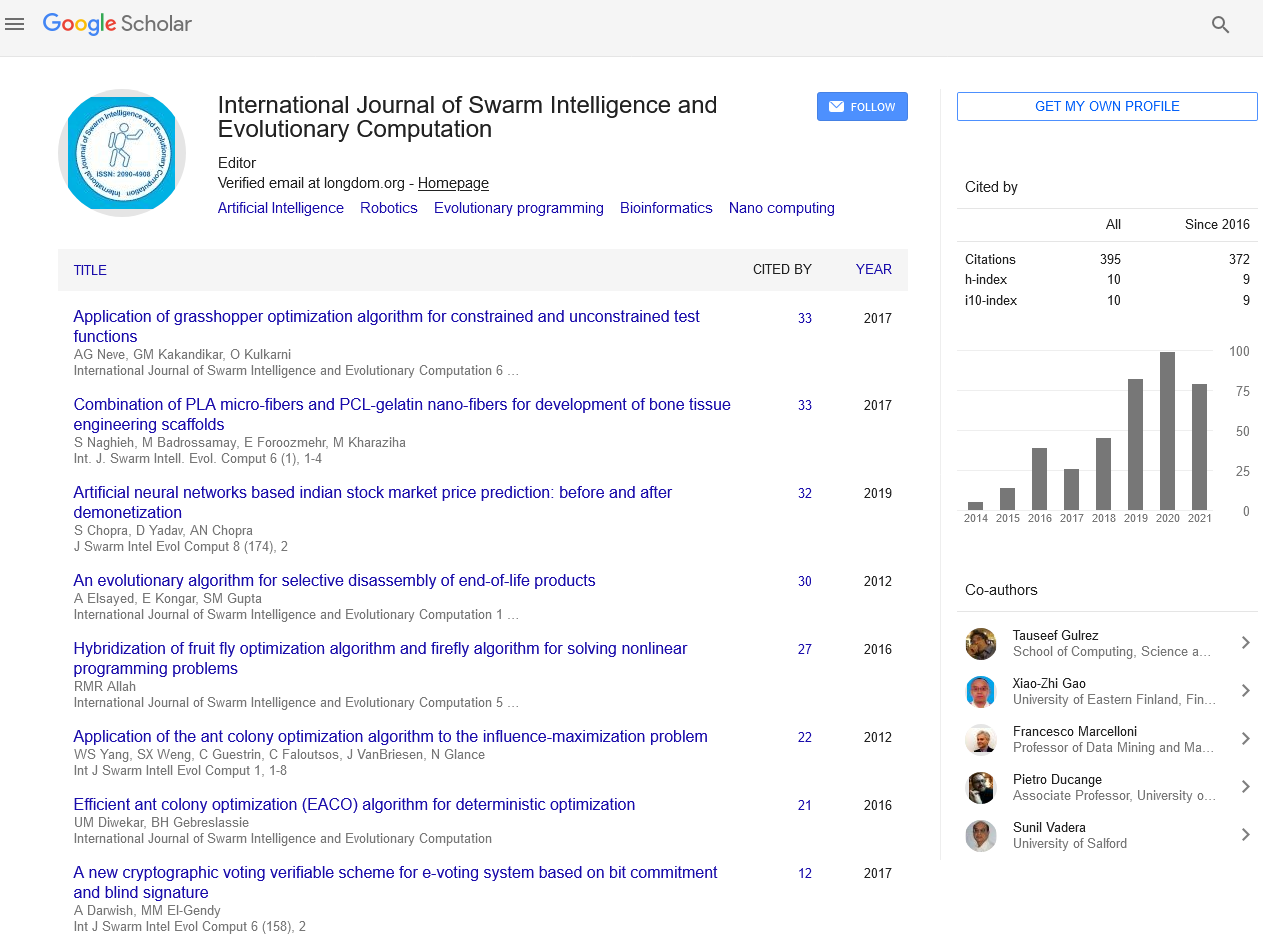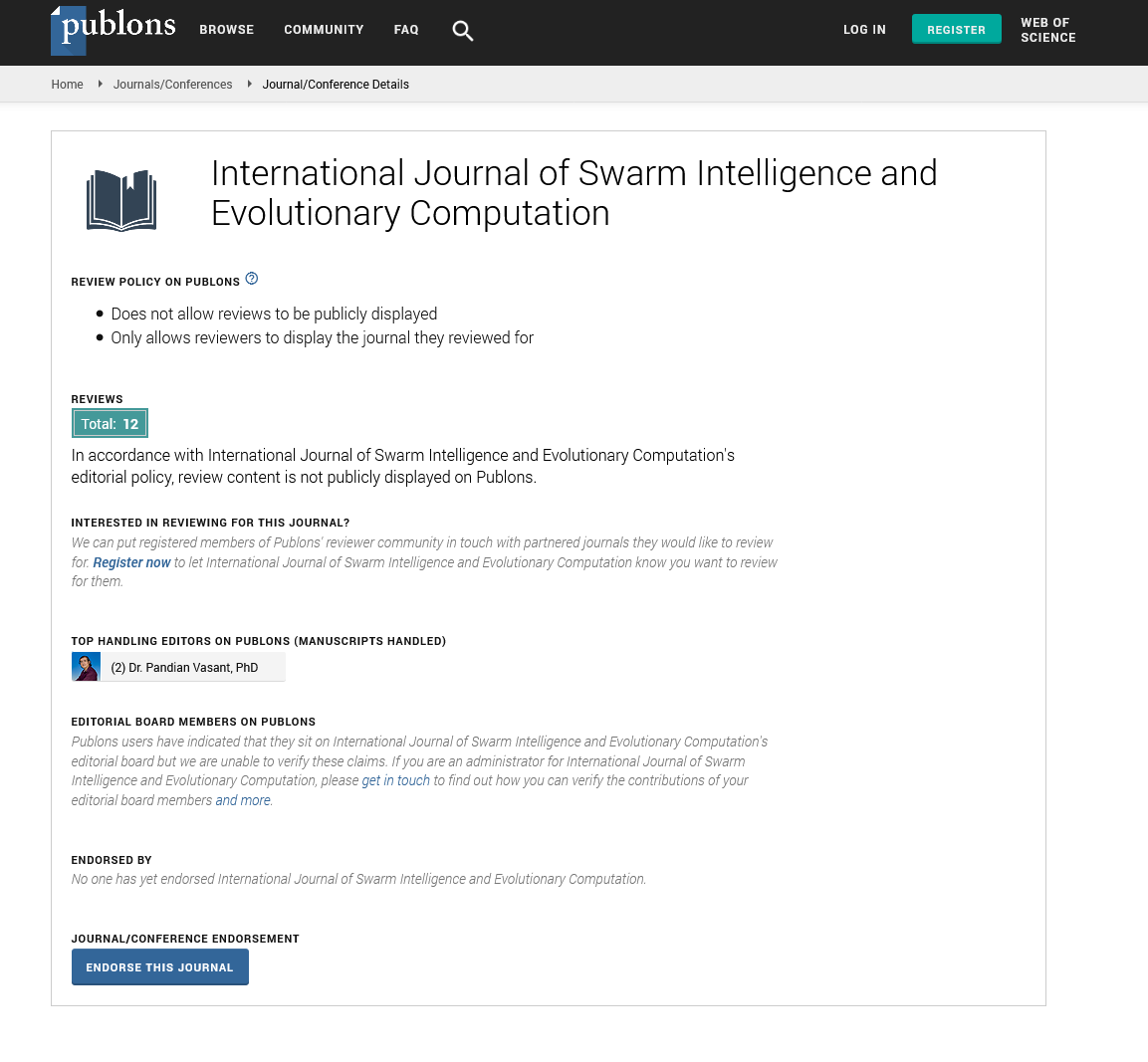Indexed In
- Genamics JournalSeek
- RefSeek
- Hamdard University
- EBSCO A-Z
- OCLC- WorldCat
- Publons
- Euro Pub
- Google Scholar
Useful Links
Share This Page
Journal Flyer

Open Access Journals
- Agri and Aquaculture
- Biochemistry
- Bioinformatics & Systems Biology
- Business & Management
- Chemistry
- Clinical Sciences
- Engineering
- Food & Nutrition
- General Science
- Genetics & Molecular Biology
- Immunology & Microbiology
- Medical Sciences
- Neuroscience & Psychology
- Nursing & Health Care
- Pharmaceutical Sciences
Commentary - (2021) Volume 10, Issue 6
Machine Intelligence in the Cognitive Ecology of the Internet
Kanishka M*Received: 04-Jun-2021 Published: 25-Jun-2021, DOI: 10.35248/2090-4908.21.10.e224
Description
Over the past two decades the Internet has emerged as an important part of the material environment in which an ever- expanding array of human cognitive and epistemic activities are situated. This makes the Internet a system of considerable importance to the philosophy of mind and cognitive science communities. Fueled by developments in wireless technology and the emergence of a plethora of Internet-enabled devices, the Internet has arguably become a critical element of our cognitively-relevant environment or ‘cognitive ecology’. Many kinds of cognitive tasks, not to mention an increasing number of social activities, rely on the Internet at one point or another, and this makes the Internet a critical focus of attention for those who see environmental factors as playing an explanatorily-significant role in humancognizing.
The idea that we should view the Internet as a form of cognitive ecology is inspired by so-called ecological approaches to cognition. These approaches emphasize the role of the extra- neural environment in shaping, supporting, and perhaps even realizing human cognitive states and processes.
Despite the fact that the Internet is an increasingly popular target of philosophical analysis, there is one respect in which the existing literature is somewhat lacking. This shortcoming relates to the almost exclusive focus on human cognition. Such a focus is, of course, understandable given the nature of our interaction with (and increasing dependence upon) the contemporary Internet. The focus is, however, unfortunate, because there is considerable evidence to suggest that the Internet is poised to exert a significant influence on machine-based cognitive capabilities. We can get a feel for the nature of this influence by reflecting on the way in which the Internet has influenced research into machine learning and Artificial Intelligence (AI). We thus see increasing amounts of research devoted to cognitive computing systems, deep learning algorithms, big data analytics, the Semantic Web and so on.
In view of all this, I suggest that we should see the Internet as an environment that is relevant to the cognitive capabilities of both human and machine agents. Such a view encourages us to assess the cognitive impacts of the Internet from the conceptual standpoint of situated cognition. In what follows, therefore, I will seek to explore the way in which the notions of extended, embedded, scaffolded, and embodied cognition can be used to help us gain a better understanding of online or Internet-situated forms of machine intelligence. Not only does this approach help to establish an important and interesting parallel with work that focuses almost exclusively on human agents, it also helps, I suggest, revealing a number of important directions for research that spans the disciplines of computer, cognitive and socialscience.
The result is a claim about the potential role of the Internet in supporting a novel form of cognitive extension. In particular, it is suggested that the Internet enables the human social environment to be incorporated into the processing loops that realize machine-based cognitive capabilities. In this case, human agents are seen to play an important role in shaping and supporting machine- based cognitive capabilities, without thereby serving as constituent elements of the physical machinery that realizes those capabilities.
Citation: Kanishka M (2021) Machine Intelligence in the Cognitive Ecology of the Internet. Int J Swarm Evol Comput. 10:224
Copyright: © 2021 Kanishka M. This is an open-access article distributed under the terms of the Creative Commons Attribution License, which permits unrestricteduse, distribution, and reproduction in any medium, provided the original author and source are credited.


